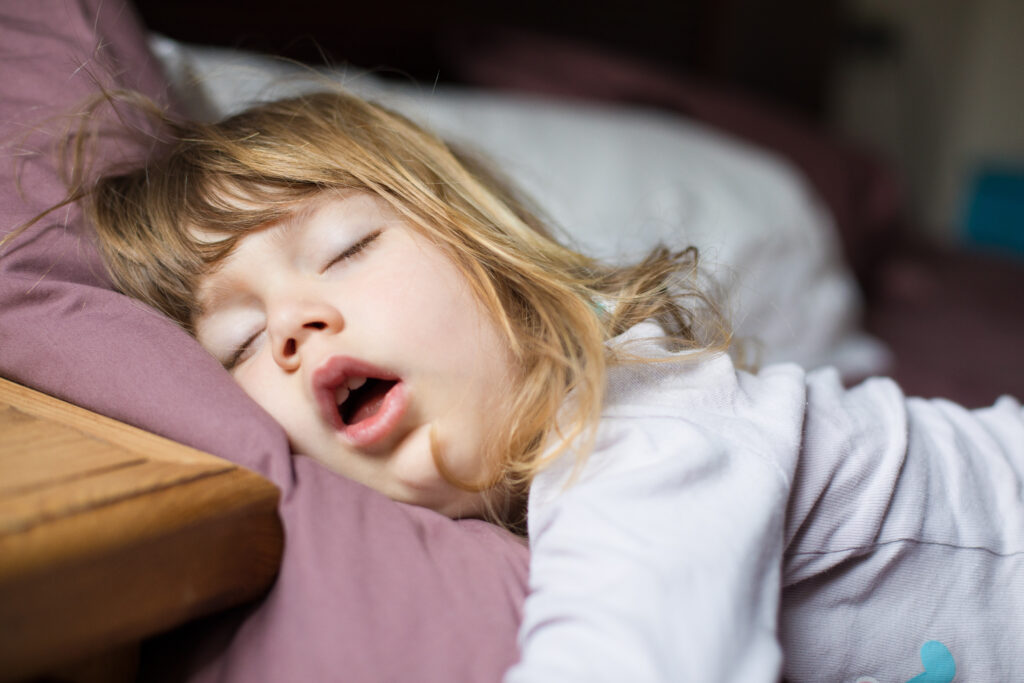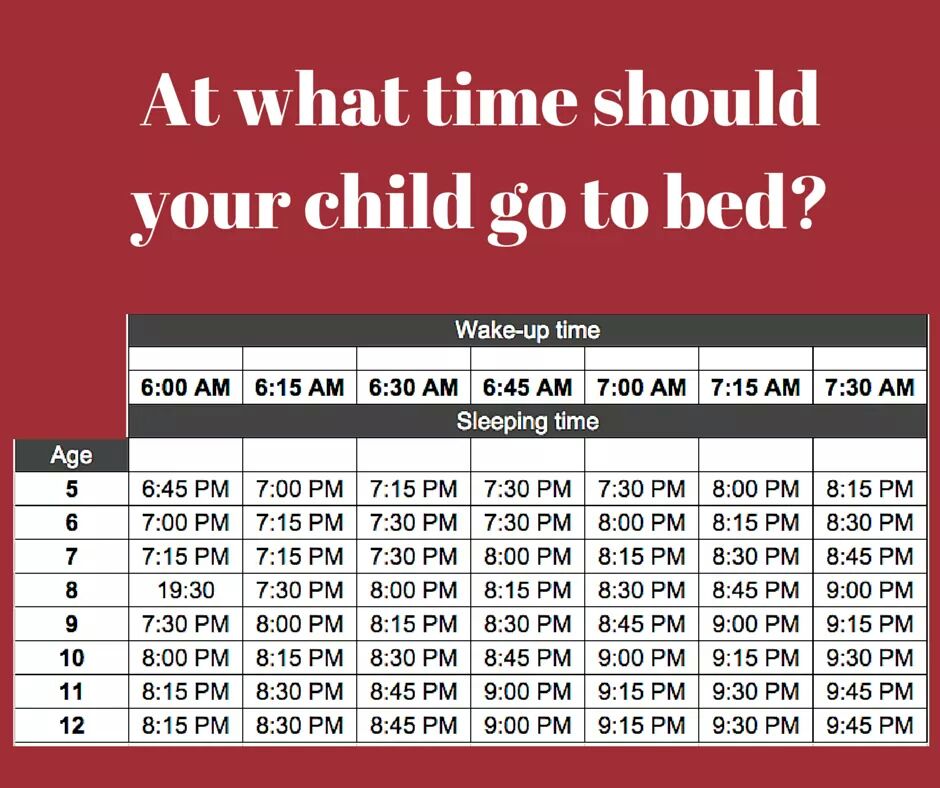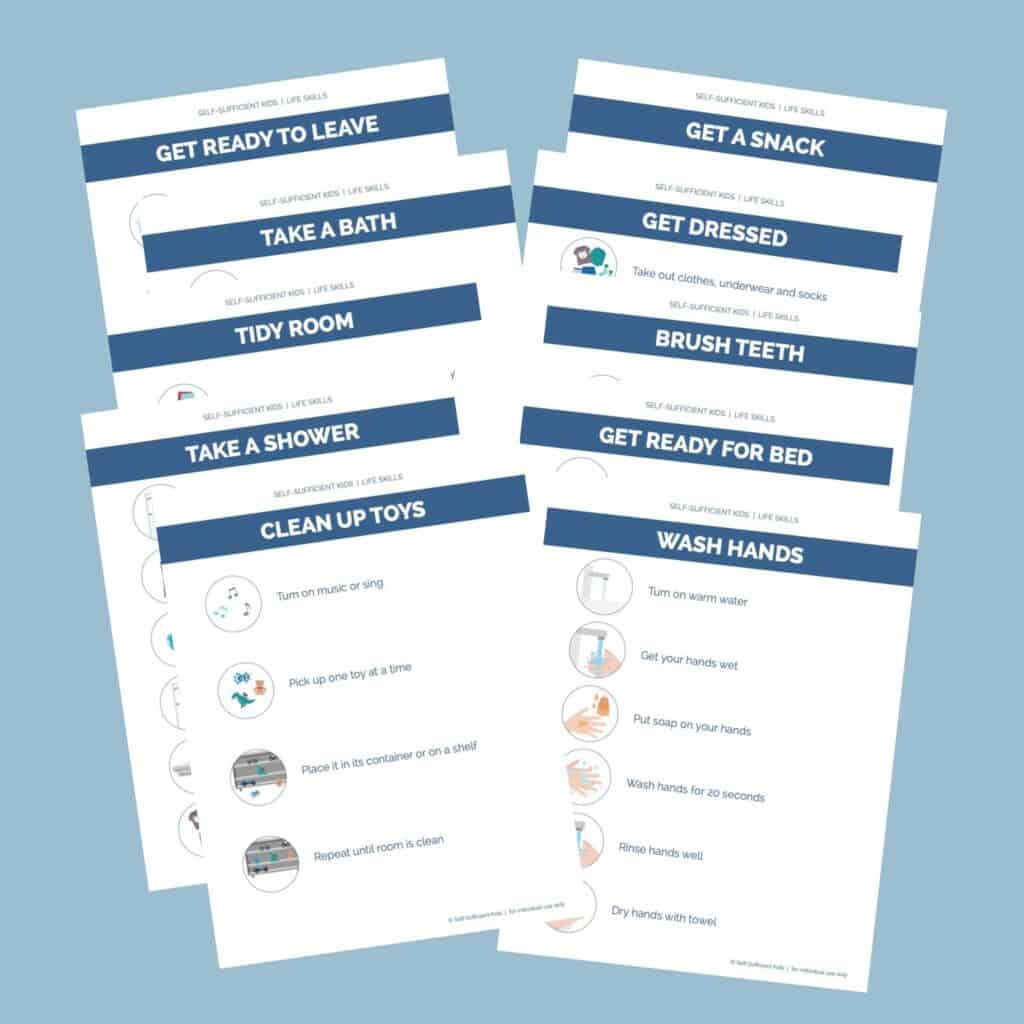The Perfect Bedtime for Kids and How Long They Need to Sleep
It can be challenging to determine the ideal kids bedtime as well as how much sleep they need. The following provides bedtimes by age and when your child should go to sleep each night.

When becoming a parent it’s instantly clear – kids don’t come with an instruction manual and you could really, as in REALLY, use one.
Sleep is in most need of an instruction manual since it’s a constant mystery. Parents are constantly wondering: How much sleep should my kids get? When should I put them to bed? And does a regular bedtime really matter?
Fortunately, plenty of research has been done to answer each of these questions. While every child and individual is different and unique, the findings of these studies shed light on what’s best for your child, and as it turns out, you as the parent.
The following sections share these findings. But they also show that having kids get adequate sleep is far more impactful on children’s physical and emotional well-being than parents understand. We’ll explain below…
How much sleep do kids need each day?
Sleep is directly related to growth in kids. In other words, the more a child is growing, the more sleep they need. That’s why newborns are constantly sleeping (albeit in small intervals) while older children – who are still growing but not as much – need less sleep than they once did.
This chart by Grow by WebMD, provides general guidelines on bedtimes by age:
| Age of Child | Amount of Sleep Each Day |
| 1-4 weeks old | 15-16 hours |
| 1-4 months old | 14-15 hours |
| 4-12 months old | 14-15 hours |
| 1-3 years old | 12-14 hours |
| 3-6 years old | 10-12 hours |
| 7-12 years old | 10-11 hours |
| 12-18 years old | 8-9 hours |
Keep in mind that these are just averages. Kids develop in different ways and at different paces. While some children may operate fine with less sleep at a certain stage of development, others will need more.
Newborns and young babies spend more than half the day sleeping. But because they haven’t developed an internal clock, also known as circadian rhythm, their sleep isn’t related to day or nighttime cycles. Babies’ sleep is sporadic, occurring in increments of 2 to 6 hours at a time. It’s not until babies are six weeks old that they begin to develop regular sleep patterns and slowly begin to distinguish day from night.
After four months of age, babies will ideally get 14-15 hours of sleep per day but many only get 12 and will still only sleep in intervals of 2 to 6 hours at a time. It’s during this stage of development that babies also begin regular morning, afternoon, and sometimes evening naps. These naps last about an hour or two each.
By about 18 months, toddlers typically start having only one nap a day in the afternoon, lasting about 1-3 hours. Although toddlers need up to 14 hours of sleep each day, many only get about 10. Somewhere between ages 3 and 5, kids drop their daytime naps and only sleep at night.
Between the ages of 7-12, kids’ lives become busier with school and extracurricular activities. At this age, kids need between 10-11 hours of sleep each day but many only average 9 hours.
Sleep is still important during the preteen and teenage years, and in some cases, teens, due to their maturing bodies, may need more sleep than they did in previous years. But societal and social pressures as well as homework and extracurricular activities often keep teens from getting the sleep they need.
Is it important for my child to have a regular bedtime?
Many parents assume that the exact time when their child goes to bed doesn’t matter, just so long as they get a decent amount of sleep.
But a study published in the journal Pediatrics, which studied 10,000 kids between the ages of 3 and 7 years old found that children with non-regular bedtimes experienced more behavioral challenges than those with a predictable bedtime.
Kids without a predictable bedtime scored higher in unhappiness, being inconsiderate, and fighting with other children (responses came from kids’ parents and teachers). The report also found that these negative effects on behavior are reversible if the child starts to have a regular bedtime.
Other studies have shown that irregular bedtimes (as well as mealtimes and unlimited screen time) can also impact kids’ risk for obesity and their ability to self-regulate emotions.
So keeping kids to a regular bedtime, as much as possible, has far-reaching benefits to a child’s well-being including emotional regulation and physical health. But you may also be wondering…
At what time should kids go to bed (and does it matter)?
In general, sleep experts suggest that young kids go to bed between 6 PM and 8 PM. And for teens, the best time is before 10 PM.
Multiple studies also show that earlier bedtimes are better. Here are some of the benefits of an early bedtime:
More restorative sleep: Sleep that happens earlier in the night is often more restorative than sleep later at night or in the morning. Meaning, your child will wake up feeling more refreshed and ready to take on the challenges of the day. This restorative sleep has also been found to help kids be less impulsive and boost their attention skills and working memory.
More sleep overall: One study shows that the earlier a child’s bedtime, the more likely they are to get the recommended amount of sleep needed at their age and stage of development. Toddlers who went to bed before 9 PM, got an average of 78 more minutes of sleep than those who stayed up late.
Less difficulty getting to sleep: Multiple studies show that it takes kids longer to get to sleep when they go to bed later. That’s because when kids or anyone is sleep deprived, their bodies release hormones to help them stay awake. These same kids also tend to have more awakenings in the middle of the night.
Less likely to be obese: One study found that when 5-year-olds went to bed after 9 PM, they were 50% more likely to be obese over time compared to those who went to bed before 9 PM. This was true even if these kids got the same amount of sleep overall. (However, no one is entirely sure why there’s a link between obesity and sleep).
More time for parents to unwind: While early, restorative sleep is deeply beneficial for kids, an earlier bedtime also means that parents will have more time to themselves to relax, unwind, and reconnect with their spouse. Which, in the long run, will not only help your own peace of mind but make you a better parent to your kids as well.
This chart, created by Wilson Elementary, can be a helpful guide to determine the best bedtime for your child based on how much sleep they need for their age and what time they need to wake up in the morning.
How to tell if your child needs an earlier bedtime
One way to tell if your child needs an earlier bedtime is by observing their early evening behavior (between 4 PM and 6 PM for toddlers and between 5 PM and 7 PM for older kids).
If your child is alert, happy, and playful during this time, they’re most likely getting enough sleep. But if they’re irritable or cranky, it’s possible they may need to go to bed earlier.
Paradoxically, another indication that your child needs an earlier bedtime is if they’re waking up really early or seem to be bouncing off the walls just before it’s time to sleep. When kids are sleep-deprived, their bodies release hormones that give them a second wind at bedtime and make it difficult for them to return to sleep in the early morning.
For teenagers, sleeping in on the weekends is a sign that they aren’t getting enough sleep during the week. And if your teen needs an alarm to wake up, and has trouble getting out of bed, this too is a sign that they need more sleep. That said, with homework and extracurriculars going late into the evening, and schools starting early, it’s a challenge to ensure teens get the sleep they need.
If you’ve determined that your child needs more sleep, try getting them to bed 20 minutes earlier for a few nights and see if their temperament improves. It will be especially obvious that your child needs more sleep if they fall asleep quickly with their earlier bedtime.
For many working families, a 7 PM bedtime can feel nearly impossible if parents are returning home at that time. In this case, the ideal bedtime may not be possible, but every increment of earlier sleep your child gets, the better.
Help guide your young child through everyday tasks with these Simple Directions for Young Children Cards. Each card serves as a reminder of how to carry out a task and allows children to eventually take on tasks independently. Click here to learn more.
How to make sure your child gets enough sleep
Now that you know that a regular and early bedtime is beneficial to kids, you’re probably wondering how to make sure they can actually get to sleep.
Here are a few good sleep habits (sometimes called good sleep hygiene) to make sure your child can get to sleep at the best time possible:
- Avoid caffeine: Just like adults – or even more so – kids won’t be able to get to sleep if they’ve recently had too much caffeine, including sodas and chocolate.
- No electronic devices before bed: Since the blue light emitted from electronic devices such as TVs, smartphones, iPads, and computers can be harmful to a child’s sleep, the National Sleep Foundation suggests ending use between 30 minutes to 2 hours before sleep.
- Set a regular bedtime: As mentioned above, setting a regular bedtime will help your child’s body follow a circadian rhythm, or internal clock, letting them know that they’re tired at a specific time each evening.
- Follow a consistent bedtime routine: Following a specific routine just before bed, such as brushing teeth, followed by putting on pajamas, bedtime stories, and playing soothing music, all give children cues that it’s time to wind down and get ready for sleep. Click here to see the best bedtime routine to get your kids to go to sleep and stay asleep.
Find a bedtime that works for you and your child
Often kids’ bedtimes and sleep patterns don’t fall neatly into our modern-day schedules of working late and waking up early in the morning.
But having your child get a good night’s sleep can be beneficial to their health, development, and emotional regulation which not only helps your child but – let’s face it – makes parenting them that much easier for you.
When kids are young and need a lot of sleep, it’s challenging to figure out a routine that makes bedtime a priority. Maybe you get home late and simply want to spend some time with your child. Strategies like having your child eat dinner at daycare or letting them wear their clothes to bed (to shorten your bedtime routine) can make an earlier bedtime more possible.
There may be seasons of life where achieving the perfect bedtime isn’t possible, but being aware of the benefits of kids’ sleep, and trying to make sleep a priority whenever possible, will benefit both your child and you.
What to do next…
1. Subscribe to Self-Sufficient Kids’ email list.
Like what you read here and want to learn more? Every Thursday I’ll send you one parenting tip about raising self-sufficient kids and creating the peaceful relationship you yearn to have with your child. Click here to sign up.
2. Take one of my quizzes!
Find out if you’re raising a self-sufficient kid (click here) or if you’re doing too much for your kids (click here). At the end of each quiz, you’ll be asked to provide your email address to see the results.
3. Get your kids started on chores.
Learn how to get your child started on chores (& keep them motivated + avoid power struggles) by enrolling in my Get Your Kids Successfully Started on Chores course. Click here to learn more and sign up.

About Kerry Flatley
Hi! I’m Kerry, the mother of two girls and a certified parent educator. I believe it is possible for parents to have a supportive, loving, and warm relationship with their kids while raising them to be independent and ultimately self-sufficient. Over the years, I’ve read numerous books and articles that support this belief and I’ve put these ideas into practice with my own kids. Read more about me and Self-Sufficient Kids here.



